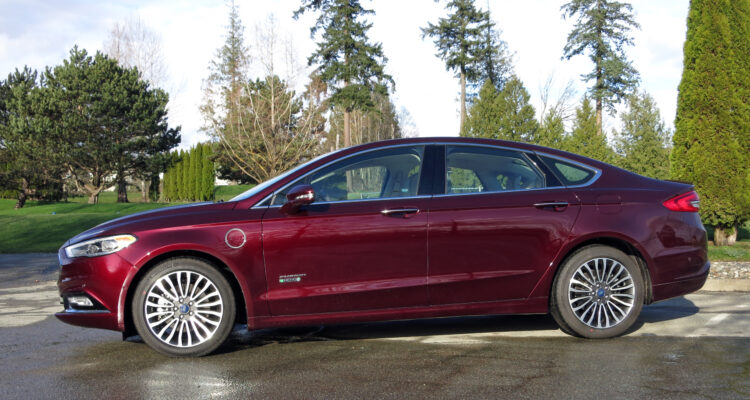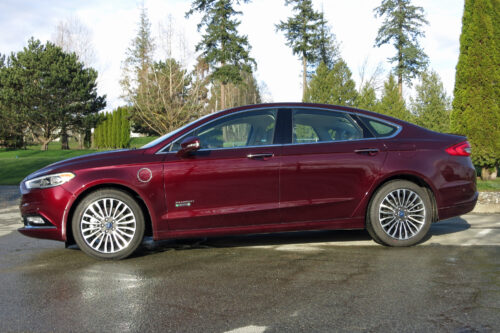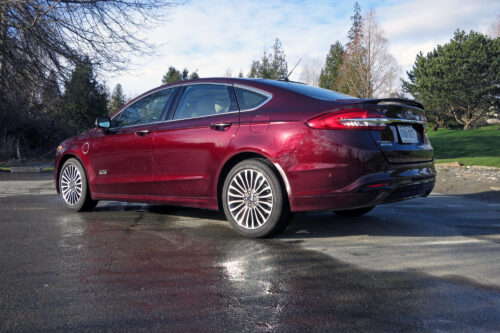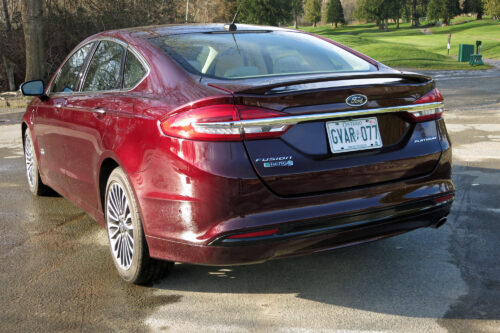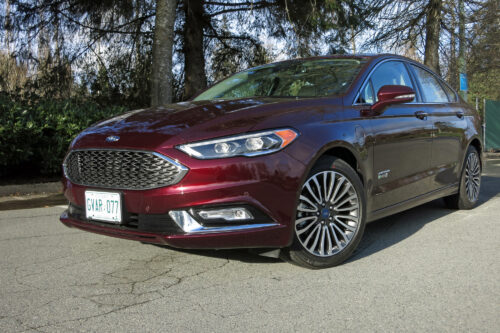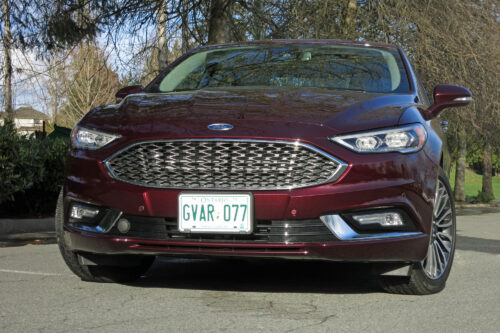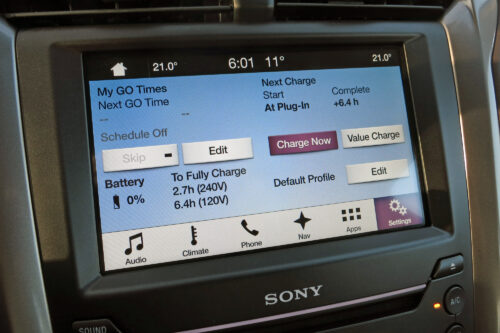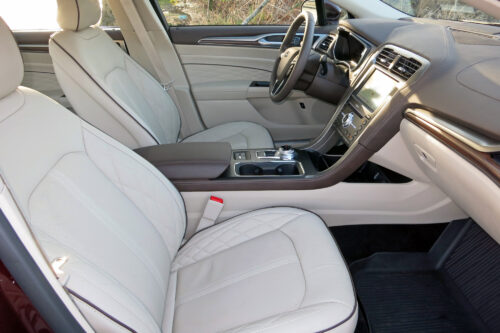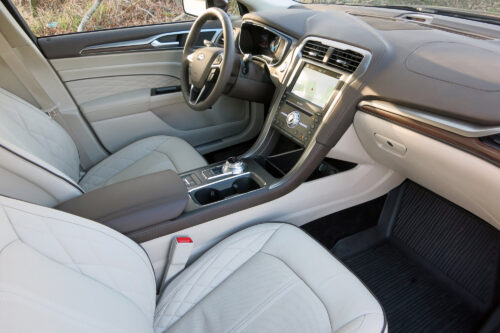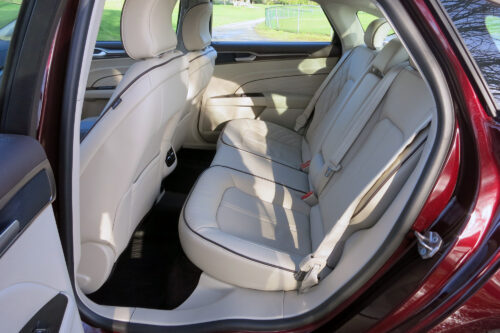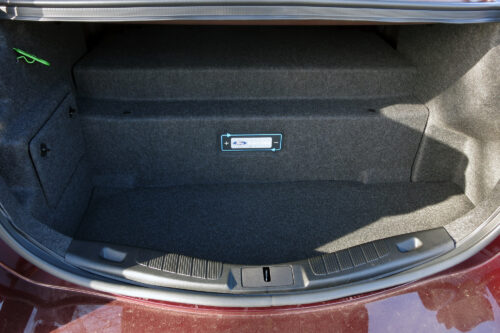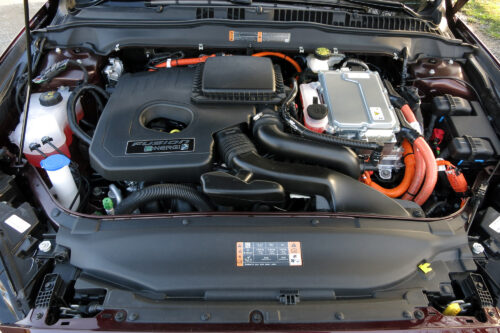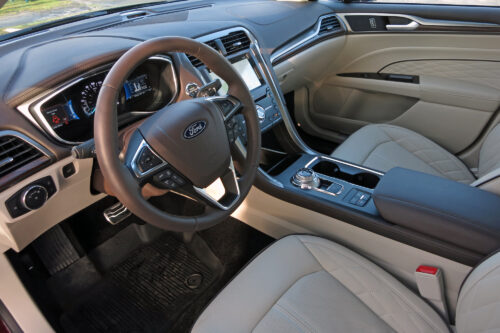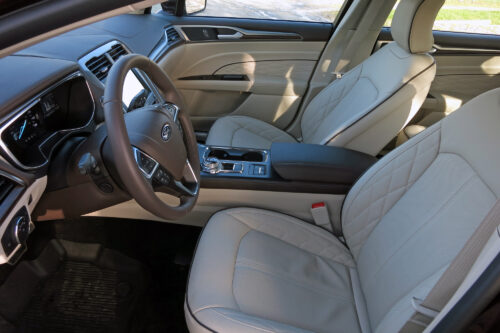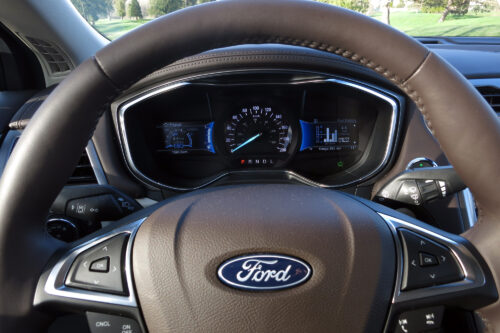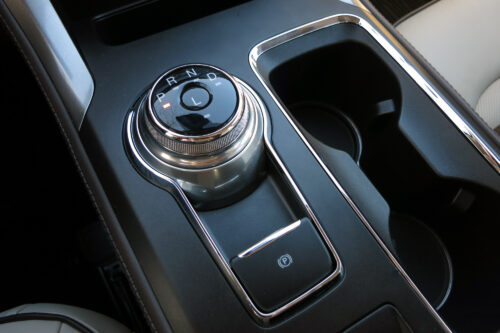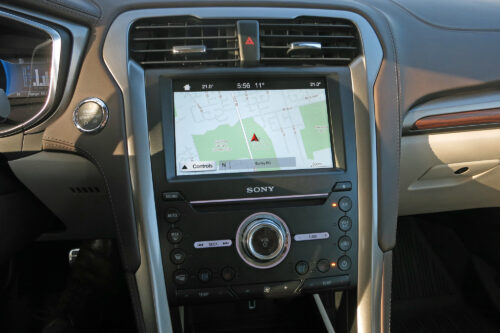This week finds me behind the wheel of a 2018 Ford Fusion Energi plug-in hybrid electric vehicle (PHEV), which happens to be the chart-topping Platinum version of Ford’s electrified sedan.
You may recall that several weeks ago I reviewed the 2018 Honda Clarity PHEV. Driving these two modern examples of plug-in hybrid technology within the same month has been remarkably revealing, leaving me to admire one for its good looks and the other for its superior EV technology.
I guess it’s akin to dating a smart, sophisticated individual that you admire for reasons more than “skin deep,” while also dating a more physically attractive person that looks good in the driveway but is somewhat less intellectually-inclined. Hmm…I hope that makes sense.
Can you guess which is which?
I’ve always admired the latest generation of Ford’s Fusion for its sleek lines and a hint of “Aston Martin” in its trapezoidal grille. This generation is a fine-driving sedan that offers buyers a wide array of power plants and trim levels.
While I would rather wake-up and see the Fusion in my driveway, its PHEV technology is falling farther and farther behind the latest PHEVs wiring their way into today’s “green-tinged” psyche; the Clarity being the latest such offering among a rapidly growing field.
So here are the two dominant factors, which hold today’s Fusion Energi back from the head of the class: 1) its electric-only range is roughly 25km; 2) its battery consumes much of the trunk, undermining any hope of Costco compatibility.
Here’s what I mean.
The best EV range I acquired in the Fusion after an overnight charge was 24km, which is pretty much its max. The Clarity gave me in the low 70 km range over the same charge period, with a 76km max. In both cases, I was using standard household current, not a level II charger.
The Fusion’s trunk capacity is rated at 232 litres, while the Clarity’s trunk will ingest 439 litres, and that’s before its rear seats are folded down – something that doesn’t happen in the Fusion Energi.
Both the Fusion Energi and Honda Clarity I tested were top-tier models, stuffed with the latest in driver assistance and safety technology, along with a full array of comfort and convenience accoutrements.
They also competed head-to-head on “as tested” pricing: The Clarity at $45,680 and the Fusion at $45,088.
Despite the EV advantages of the Clarity, I wouldn’t be too precipitous about kicking the Fusion out of the driveway. Maybe it’s a reflection of my intellect, but I enjoyed driving the Fusion Energi and was smitten with its beautiful premium-level cabin and its polished performance.
And despite the brevity of its virtual extension cord, I was able to commute to the office and back using only electrical propulsion. Granted my journey is a short one, but for much of my “about town” toiling, 24 km of fossil-free driving would serve me reasonably well – but there’s obviously room for improvement here.
When the 2.0L Atkinson-cycle engine jumps into service, it does so with outstanding discretion. Quiet and unobtrusive, the gas-fired mill doesn’t make a peep while there’s spark in the battery, unless of course, the throttle is nailed, at which time all hands are on deck for speedy acceleration.
In addition to the vehicle’s operational refinement, occupants are bound to enjoy its smooth, composed ride dynamics. The Fusion’s chassis is rock solid, enabling its underpinnings to absorb Canada’s worst without shake, shudder, or thump, thanks in part to Ford’s Pothole Mitigation technology.
From a driving perspective, I found the Fusion’s electric power-steering to be accurate and responsive, if not a little springy and virtual feeling. Its regenerative brakes are strong but also a little on the grabby and virtual side, which is not unusual for EVs. Both of these characteristics can easily be adapted to with a reasonable period of seat time.
While there are more technically savvy PHEV sedans out there that will comfortably carry five adults, I can’t think of any I find more attractive or appealing to drive which are not higher-priced Euro products, such as the BMW 330e.
Honda’s Clarity is the closest competitor. It’s the superior sedan when it comes to PHEV technology, but shallow as this may be, the Fusion Energi is the face I want to wake-up to.
2018 Ford Fusion Energi Platinum
Price as tested (before taxes): $45,088.00
Configuration: PHEV front-wheel drive
Engine/transmission: 2.0L gas engine, 7.6 kWh battery, e-continuously variable transmission
Power: 188 total system horsepower
Fuel-economy ratings (L/100km): 2.4Le, hybrid combined mode 5.0L
Warranty (basic): 3 years / 60,000 km
Competitors: Chevrolet Volt, Honda Clarity, Hyundai Sonata, Kia Optima
Related links:
Ford Canada
Edmunds



